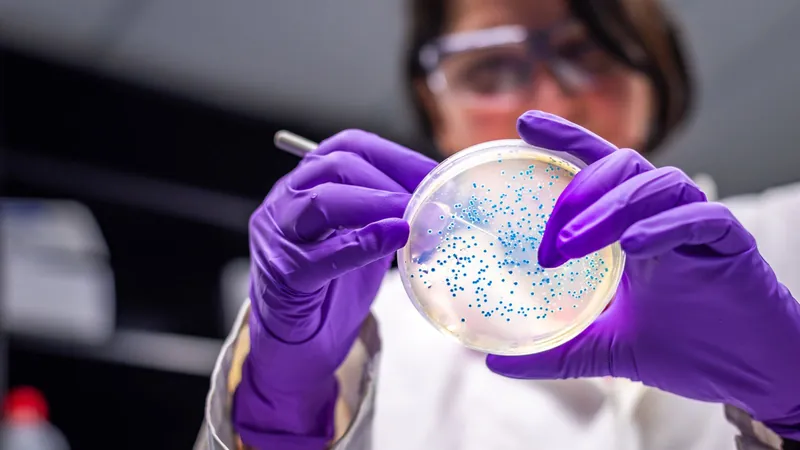
Revolutionary Breakthrough: Chinese Scientists Unveil Non-Invasive Blood Sodium Monitoring System!
2025-07-08
Author: Yu
Game-Changing Technology in Medical Monitoring
In an impressive leap for medical science, a pioneering research team from Tianjin University, China, has developed an innovative system that enables non-invasive and dynamic monitoring of blood sodium levels. This cutting-edge technology is poised to revolutionize the management of dehydration, kidney diseases, and neuroendocrine disorders.
Harnessing Terahertz Radiation for Breakthrough Results
Published in the prestigious journal Optica, the study reveals how terahertz radiation—sitting comfortably between microwave and mid-infrared bands—offers unique advantages for biomedical sensing. With low energy consumption and minimal tissue damage, its high sensitivity to molecular changes makes it a game-changer. However, previous attempts were stymied by terahertz radiation's strong absorption by water and its limited ability to penetrate biological tissues.
A Novel Solution to Long-Standing Challenges
The research team has ingeniously tackled these challenges through their advanced terahertz optoacoustic systems. By emitting terahertz waves specifically tuned to resonate with sodium ions while filtering out water absorption signals, they have created a method to selectively excite sodium vibrations. This results in the generation of ultrasound waves that are easily captured and analyzed, effectively reducing scattering and enhancing penetration through muscle and bone.
A Painless Alternative to Traditional Methods
Under the leadership of Professor Tian Zhen, the team successfully demonstrated label-free, continuous sodium monitoring with validated accuracy in live mice and human volunteers. This innovative approach offers a painless alternative to traditional needle-based tests, paving the way for clinical use and transforming the patient experience.
Expanding Horizons: Future Applications Beyond Sodium Monitoring
The implications of this breakthrough are extensive. Researcher Li Jiao remarked, "The system holds promise beyond sodium monitoring. By leveraging terahertz characteristic absorption spectra, it could potentially detect other ions like potassium and calcium, as well as biomolecules such as sugars, proteins, and enzymes—significantly expanding its clinical utility." This positions the technology not just as a tool for sodium tracking, but as a versatile platform for various critical health assessments.
A New Dawn for Biomedical Sensing
As this groundbreaking technology progresses toward clinical application, the potential for improved patient outcomes and enhanced monitoring capabilities is immense. Keep an eye on these developments, as they could redefine how we approach health management in the near future!





 Brasil (PT)
Brasil (PT)
 Canada (EN)
Canada (EN)
 Chile (ES)
Chile (ES)
 Česko (CS)
Česko (CS)
 대한민국 (KO)
대한민국 (KO)
 España (ES)
España (ES)
 France (FR)
France (FR)
 Hong Kong (EN)
Hong Kong (EN)
 Italia (IT)
Italia (IT)
 日本 (JA)
日本 (JA)
 Magyarország (HU)
Magyarország (HU)
 Norge (NO)
Norge (NO)
 Polska (PL)
Polska (PL)
 Schweiz (DE)
Schweiz (DE)
 Singapore (EN)
Singapore (EN)
 Sverige (SV)
Sverige (SV)
 Suomi (FI)
Suomi (FI)
 Türkiye (TR)
Türkiye (TR)
 الإمارات العربية المتحدة (AR)
الإمارات العربية المتحدة (AR)